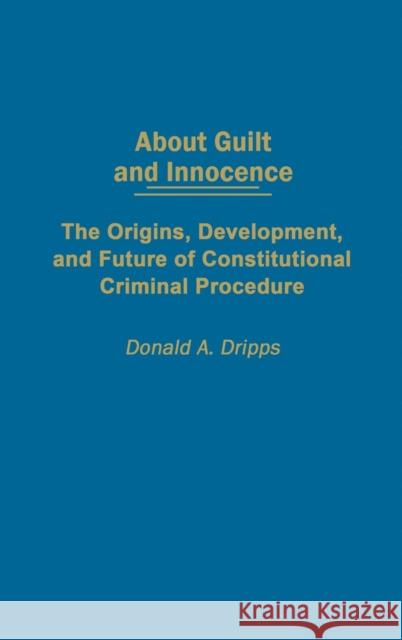About Guilt and Innocence: The Origins, Development, and Future of Constitutional Criminal Procedure » książka
About Guilt and Innocence: The Origins, Development, and Future of Constitutional Criminal Procedure
ISBN-13: 9780275977306 / Angielski / Twarda / 2002 / 320 str.
This remarkably original and vital work argues that the problems are rooted in a disjunction between prevailing values and the prevailing doctrinal regime in constitutional law. Dripps asserts that the Fourteenth Amendment's more general standards of due process and equal protection encompass the values that ought to govern the criminal process.
Why does the American criminal justice system punish too many innocent people, failing to punish so many guilty parties and imposing a disproportionate burden on blacks? This remarkably original and vital work argues that the problems are rooted in a disjunction between prevailing values and the prevailing doctrinal regime in constitutional law. Dripps asserts that the Fourteenth Amendment's more general standards of due process and equal protection encompass the values that ought to govern the criminal process.
Criminal procedure ought to be about protecting the innocent, punishing the guilty, and doing equal justice. Modern legal doctrine, however, hinders these pursuits by concentrating on the specific procedural safeguards contained in the Bill of Rights. Dripps argues that a renewed focus on the Fourteenth Amendment would be more consistent than current law with both our values and with the legitimate sources of Constitutional law, and will promote the instrumental values the criminal process ought to serve. Legal and constitutional scholars will find his account of our criminal system's disarray compelling, and his argument as to how it may be reconstructed important and provoking.











